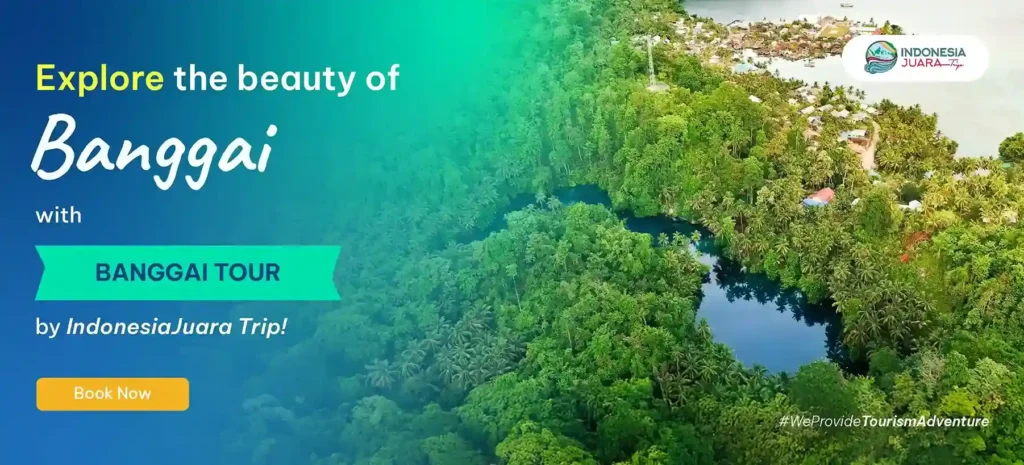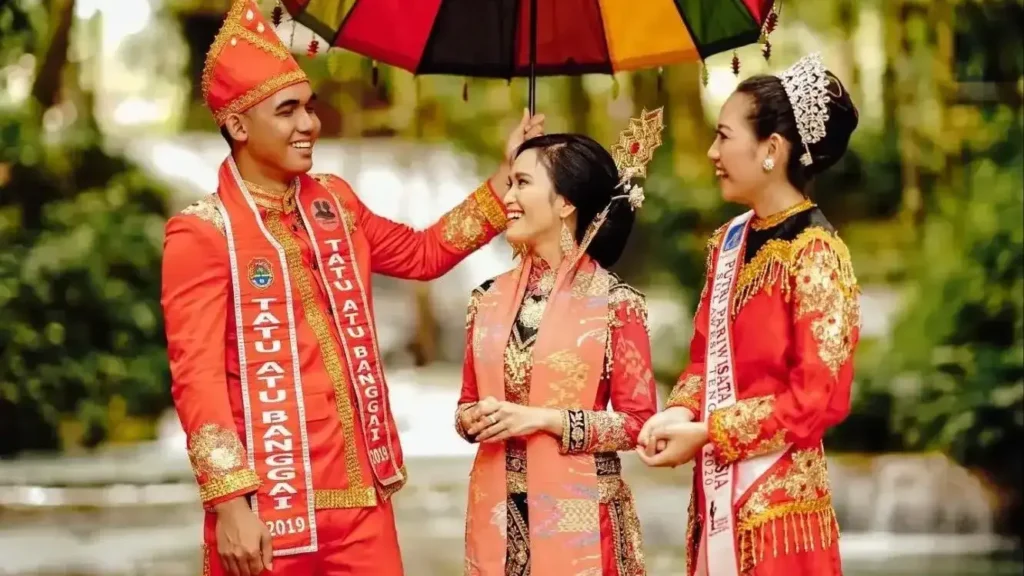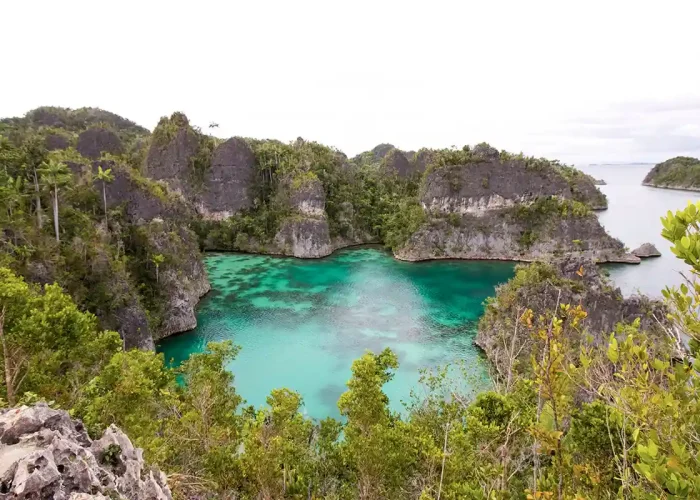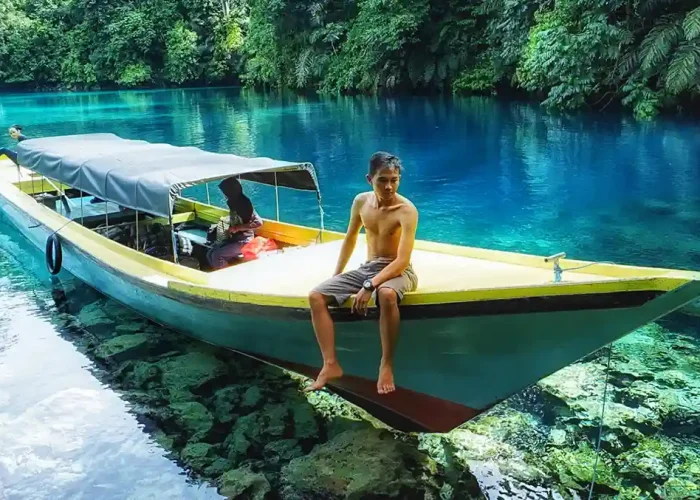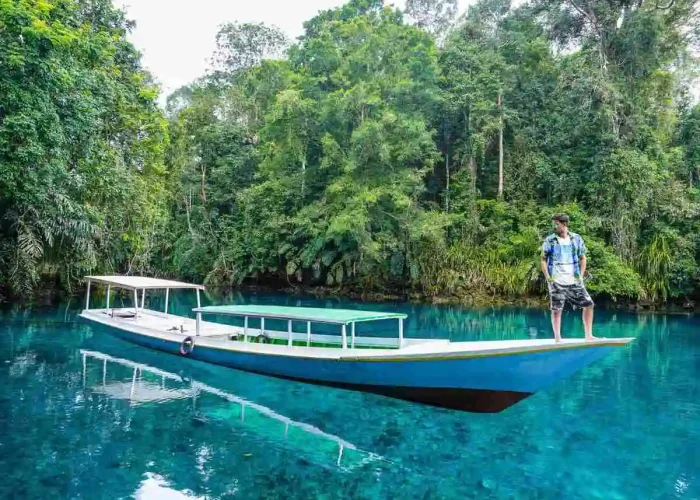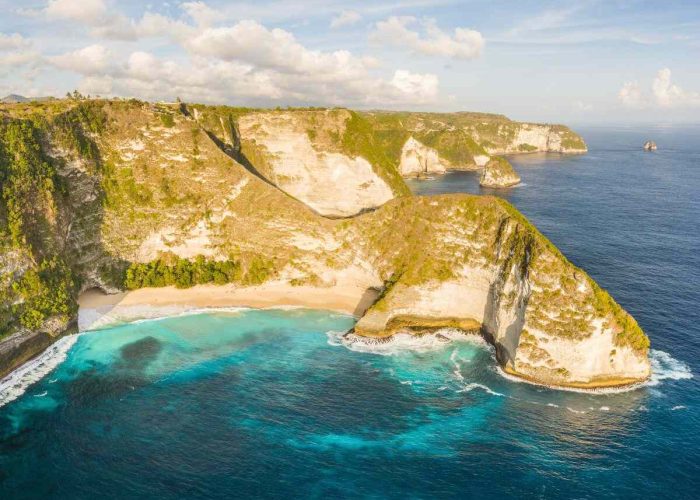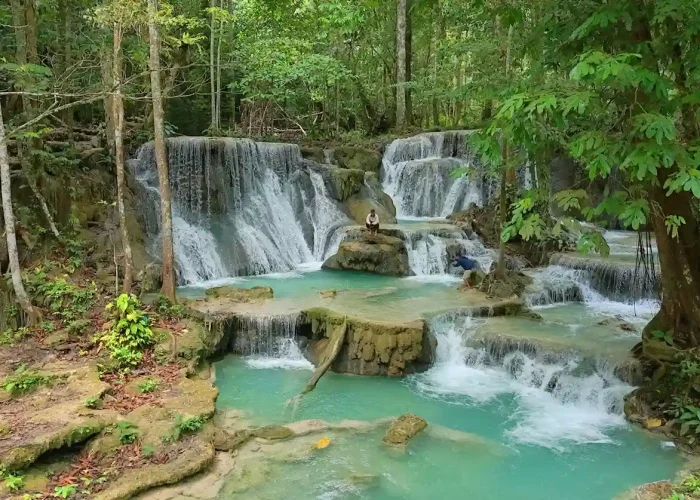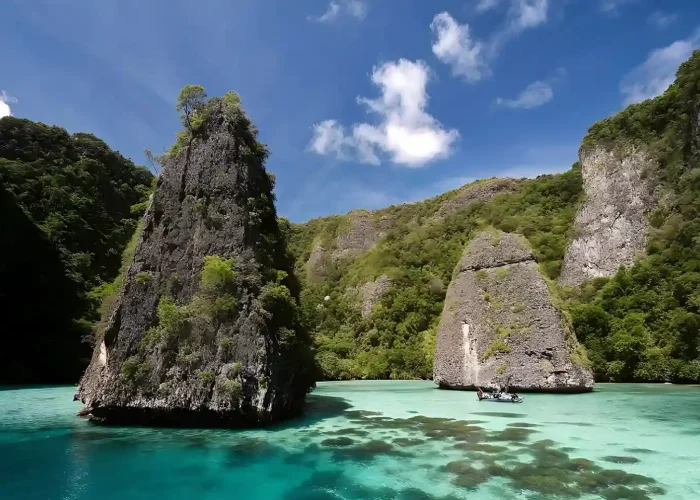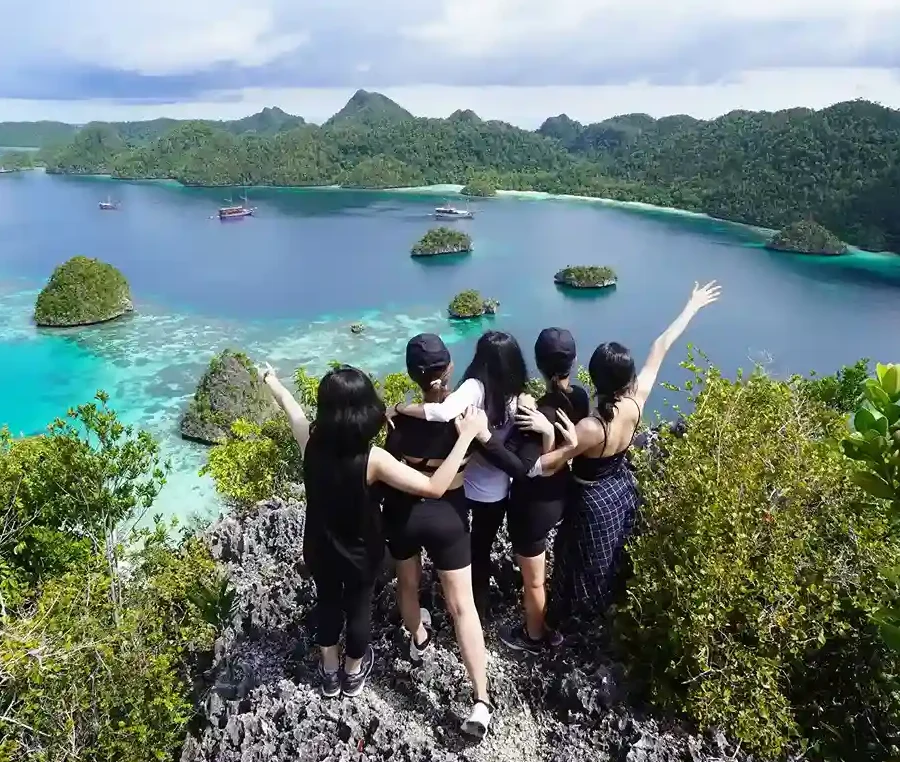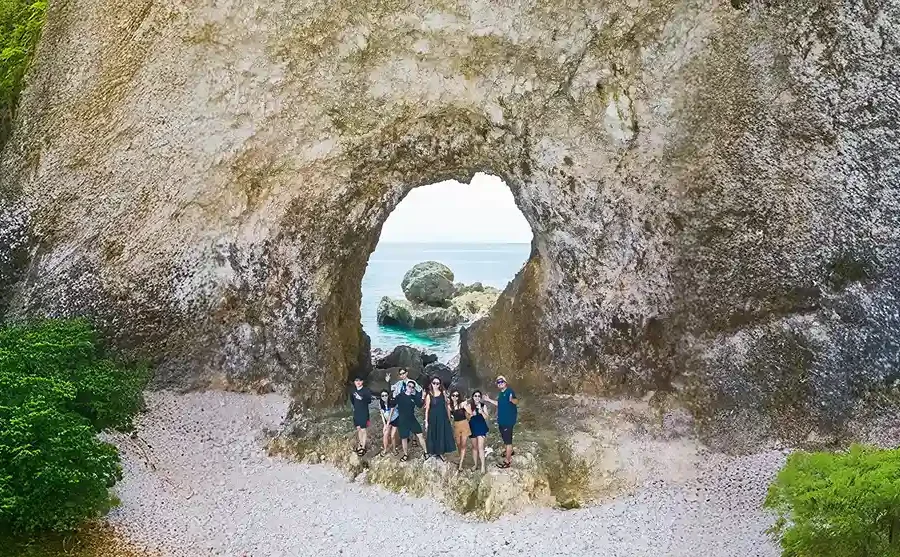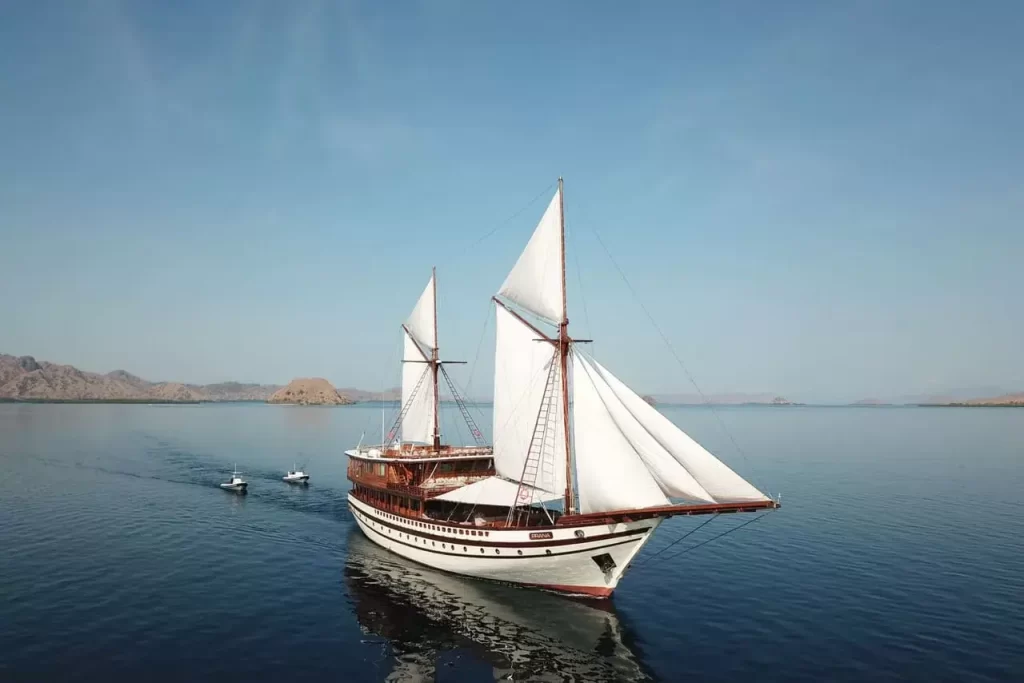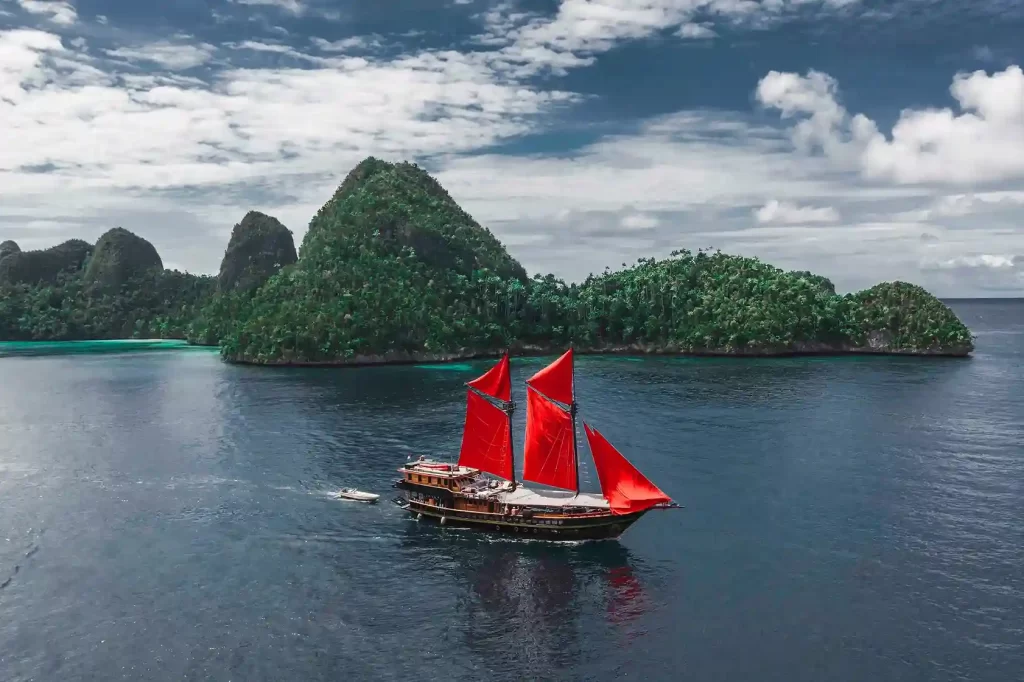Have you ever heard of the Saluan tribe? This name may not be as well-known as some of Indonesia’s larger ethnic groups, but that is precisely where its charm lies. Hidden behind the mountains and along the coasts of Luwuk Banggai, Central Sulawesi, the Saluan tribe preserves traces of an ancient culture that still thrives today. From a language that’s nearly extinct, a resilient system of customs, to spiritual traditions deeply connected with nature, all of it is heritage worth recognizing and safeguarding.
This article will guide you to explore who the Saluan tribe truly are, what their history is, what their daily life is like, and why their culture deserves to be part of your next travel experience.
Table of Contents
Who Are the Saluan Tribe?
The Saluan tribe is an indigenous ethnic group that inhabits eastern Central Sulawesi, especially in Banggai Regency, including the towns of Luwuk, Balantak, and the surrounding coastal and hillside areas. While their name may not be as familiar as the Toraja or Bugis, the existence of the Saluan tribe actually reveals ancient cultural traces that are fascinating to discover.
As members of the Austronesian family, the Saluan tribe is characterized by their unique language, customs, and social systems. Their identity remains preserved in the daily lives of rural communities, from farming methods, village deliberations, to ongoing customary rituals. This uniqueness makes them one of the significant ethnic groups in the narrative of Sulawesi’s cultural diversity.
Moreover, their presence helps maintain a balanced cultural ecosystem in eastern Indonesia. They live in harmony with their surroundings, uphold collective ethics, and keep ancestral values alive across generations.
History and Origins of the Saluan Tribe
Anthropologically, the Saluan tribe is believed to descend from an early wave of Austronesian migrations that spread across the Indonesian archipelago. They are among the communities that settled in eastern Sulawesi long before the influence of organized religion and colonial rule arrived.
In local history, the Saluan people are also known as early supporters of the Banggai kingdom, which flourished from the 17th century. Banggai was one of the most influential maritime kingdoms in Southeast Sulawesi and North Maluku. The Saluan tribe’s role in building this local civilization is visible in their well-structured social systems, rich oral traditions, and enduring cultural heritage.
Though written documentation remains limited, the Saluan tribe’s historical narrative lives on through folk tales, traditional songs, and ancestral legends passed down verbally over generations. These stories mirror the values of life deeply rooted in harmony with nature and community. For younger generations of Saluan, these narratives serve as a connecting thread to their cultural roots, even as many now migrate or work in major cities. Their identity never disappears, it simply adapts.
Read more: How to Get to Luwuk Banggai
Culture of the Saluan Tribe from Luwuk Banggai
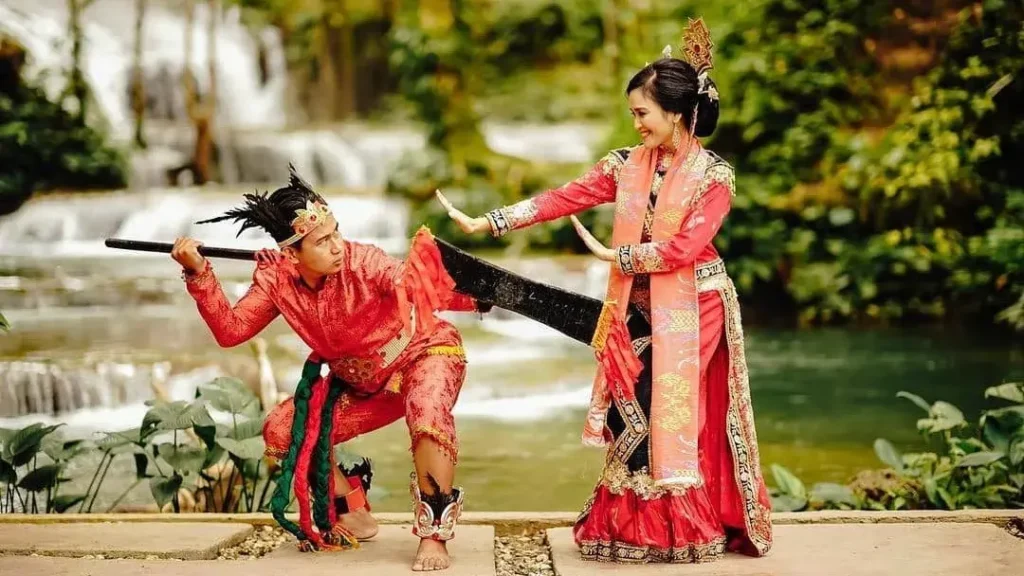
The culture of the Saluan tribe is richly preserved, particularly in traditional villages. Below are some cultural elements that define their heritage:
- Traditional Wedding Ceremony
The Saluan tribe has a traditional wedding that is abundant in cultural values: formal proposals through family representatives, the giving of dowry, and a customary celebration accompanied by traditional music. This ceremony reflects the values of kinship and respect between clans. The harmony between two united families is a highly honored principle. - Funeral Rites
When a community member passes away, the Saluan tribe performs customary funeral ceremonies. Typically, there is a final tribute performed by the extended family, accompanied by ancestral prayers recited across generations. This ceremony is a form of reverence toward ancestral spirits and spiritual purification. - Traditional Gong and Drum Music
Traditional music plays a vital role in various Saluan tribal ceremonies. Instruments such as the gong and drum are often played during rituals or festivities as a way to honor ancestors and spiritual forces. The rhythm performed carries not just aesthetic function, but also symbolism. - Traditional Dance as Cultural Expression
Local dance is used as a means of cultural expression, especially during ritual feasts and welcoming guests. The harmonious movements represent the connection between humans, nature, and one another. Young people are also taught dance from an early age as part of preserving cultural identity. - Handicrafts and Stilt Houses
The Saluan people are recognized for their wooden stilt houses and handicrafts made from rattan or bamboo. These crafts serve practical purposes and reflect aesthetic values and local wisdom. Some of these products have even begun to be marketed beyond the region as part of a tradition-based creative economy.
Daily Life of the Saluan Tribe
Although they live within the framework of tradition, the Saluan people are quite adaptive to change. Here’s a glimpse of their daily life:
- Farming and Gardening
The primary livelihood of the Saluan community is farming, especially growing upland rice, tubers, and spices. These activities are carried out collectively and passed down from generation to generation. The planting and harvesting seasons still follow natural and traditional cycles. - Traditional Fishing Along Eastern Sulawesi Coastline
For those living near the coast, fishing is a daily routine. They continue to use small boats and traditional tools, selling their catch at local markets. Beyond providing a livelihood, the sea also holds spiritual meaning for them. - Communal Life Based on Mutual Aid
The tradition of mutual aid is the cornerstone of social relations. Whether building houses, harvesting together, or celebrating rituals, everything is done collectively as a form of solidarity among residents. This principle strengthens unity in facing life’s challenges. - Saluan Language as a Local Identity
Aside from Indonesian, the community still uses the Saluan language in daily life. This language belongs to the Austronesian family and serves as a symbol of identity and intergenerational communication. Unfortunately, the language is becoming increasingly vulnerable due to a lack of documentation and fewer users among the younger generations. - Living in Traditional Stilt Houses
Most of the community still resides in traditional stilt houses designed for the tropical climate. These houses are not just dwellings; they embody a philosophy of life that aligns with nature. The elevated structure also protects occupants from wild animals and flooding.
Read more: When is the Best Time to Visit Banggai? Find the Answer Here!
Now’s the Time to Explore Local Culture with IndonesiaJuara Trip!
Taking a closer look at the life of the Saluan tribe isn’t only about discovering culture, it’s about honoring ancestral heritage that continues to thrive in a world that keeps changing. From centuries-old history that shaped their identity, to daily life rooted in mutual aid and local wisdom, there’s a lesson here: Indonesia’s richness isn’t just in its landscapes, but in its people and their traditions. If you want to feel the warmth of local culture firsthand and explore the untouched beauty of Central Sulawesi, now is the perfect time. By joining the Luwuk Banggai Tour with IndonesiaJuara Trip, you can enjoy an authentic journey through eastern Indonesia, with a travel experience that is safe, comfortable, and full of unforgettable moments. From crystal-clear seas to story-rich cultural villages, everything is ready for you to explore. Let’s make your steps toward discovering Sulawesi meaningful, and let IndonesiaJuara Trip help capture every moment!
